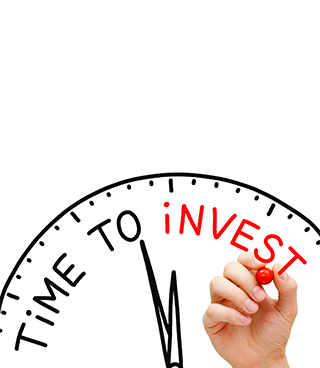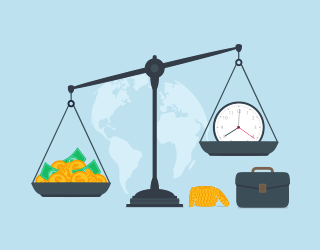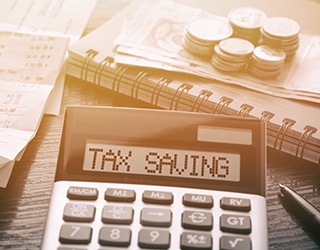In a sense, investing in a mutual fund is like riding a train – you need not know how the train runs, the route it needs to take or how to drive it. All you have to do is buy the ticket to your destination and get off the train once it reaches there.
The regulators have not mandated any minimum age to invest in a mutual fund. In fact, even young kids can open an investment account and buy into mutual funds with the money they receive as gifts on their birthday or festivals. Obviously, there is no upper age either – whatever age you are, you can benefit from investing in mutual funds.
Of course, not all investors have the same investment goals. Therefore, they cannot make the same investments. Mutual Funds come in different flavours just for this reason. You can choose to invest in funds that aim for safety with regular income or those that go for taking on more risks for higher returns or those that provide highest liquidity, based on your investment goals and other investments that you have already made.
Best mode of investment in mutual fund– SIP
Once you have decided that you would like to invest in mutual funds, you must decide how to go about it. You would have heard it said that the best time to enter the market is when it has hit rock bottom – buy low, sell high. This is called timing the market. But for most beginners and casual investors it is impossible to monitor the market long enough to achieve this. Further, you may not have a huge lumpsum amount at hand to invest and take advantage of such an opportunity. Further, since you will be investing in a funds, and not piecemeal stocks, all the stocks that make up the fund will never be at the rock bottom together – and if they are, then the fund is not diversified enough anyways, and you may want to reconsider investing in it.
An alternative that suits most investors is known as systematic investment plan or SIP. SIP involves making fixed, periodic investment into the mutual fund of your choice. Typically, the periodicity is once a month, but you can choose to invest once per quarter, or even per fortnight or per week. Doing this ensures that your buying price is averaged over a long period – and therefore, you do not have to worry about timing the market or think about whether the market is bearish or bullish. As the amount to be invested every period is fixed, SIP ensures that you purchase more units when the market is down and NAV is lower than average, and lesser units when market is bullish and NAV is higher than average. Over the long-term, this ensures that the average cost per unit remains low.
Further, the advantage of SIP is that you do not have to make a large investment at one go. You can keep the invest volume to something that you can manage on a monthly basis. Even a small amount will add up to a large corpus with time, if you stick to the discipline of investing every pre-decided period. If you choose to reinvest any returns that you get from the funds in the form of dividends, etc. The compounding effect over the years would add up to a significantly high value.
Other Important aspects to consider when you decide to start investing in mutual funds
While it is true that the best time start investing is right now, there are a few aspects you should consider before you start investing. These will decide how much you should invest and what flavour of mutual fund would best suit your requirement. These include
Stable source of income
When you plan to make an investment, especially through a systematic investment plan as suggested here, it is important that you have a stable source of income to fund these investments. Remember that you need to meet your day to day expenses without having to dip into the investment that you are making – and this is only possible if you have a stable source of income. Note that you need only worry about your income being stable – not high. No income is too low to invest. In fact, many a young people make the mistake of not making investments early in their career believing they will do so when they have a higher disposable income. This is a wrong approach! You should invest at least 10% of your monthly income, regardless of how large your income is and plan to meet all your other expenses with the rest of your income. Cut down on your expenses today, rather than on your investments. The single biggest predictor of success in life is not IQ, but the ability to postpone gratification – avoid making purchases today to invest and you will be able to make much bigger purchases later in life.
Risk Appetite
Your choice of investment will depend directly on how much risk you can take. It is generally considered that a youngster can take much more risk than someone close to retirement, considering all else is equal – as the youngster has more time for the risk to payoff compared to latter. Your risk appetite also depends on how what the rest of your portfolio looks like. For example, if all your other investments are in the F&O space, you should look for low-risk mutual funds that are virtually loss free and guarantee a safe return. On the other hand, if you are already invested in instruments like PPF and fixed deposits, you can choose to invest in high-risk, high0return funds that aim to maximize returns over a short period.
Goals
Before you make your investments, you have to be clear on what your goals are. Unless you know why you are making an investment, you will not be able to decide where the investment should be, and when you should exit. For example, if you are aiming to build a retirement fund with your retirement close to 20 years away, you can choose mutual funds with a long-term horizon and with focus on FDs and other safe instruments. On the other hand, if you are looking to save money for a car that you will like to buy 5 years down the line – a shorter term horizon with focus on equity with strong fundamentals may be a better choice.
Stage in life (Single/Married etc)
Stage in life that you are in has a direct impact on both your risk appetite and goals. As pointed out earlier, someone who is still single and just starting out his career can take higher risks than someone with a child and already approaching mid-life. Life-stage could also decide the time horizon you can work with. For example, if you have a child today – you have about 16 years to build a corpus for his higher education. You may also want to save monies for your child’s wedding that may take place about 25 years from now. The 9 to 10 year difference in these two events means that you can choose to make different kinds of investment choices for each of these. On the other hand, an emergency fund needs to be available as soon as possible and you need to make sure that the investments that you make for such a fund remains liquid so as you can turn it into cash on very short notice.
Planning for tax savings
None of us want to pay more tax than strictly required. One of the ways to save on income tax is through savings that qualify for a deduction under section 80C of the Income Tax Act. While tax savings should not be the sole reason for your investment decision, it does create a lower bound on the amount you want to invest in tax saving schemes. Many funds are built with a specific focus on tax-efficiency, like the Equity Linked Saving Schemes (ELSS). With an eye on tax savings, you can choose to invest via a SIP in ELSS funds, or you could also do so in a lumpsum at the start of the year. While doing so at the end of the year would have the same impact on your tax liability, it is better to make your investments as early as possible to avoid any last-minute rush resulting in poor choice of investment.
Conclusion
Investing in mutual funds generally makes for a good return in the long run. If you have not yet started investing in mutual funds, you should not delay it anymore. Once you have considered the factors listed earlier, and decided on the flavour of mutual fund you would like to invest in – the best way forward is to build a systematic investment plan with a periodicity and quantum of investment that will let you achieve your goals. Remember that you do not invest what is left over after you have covered other expenses, but you spend what is left over after you have made your investments towards the goals you wish to achieve.



